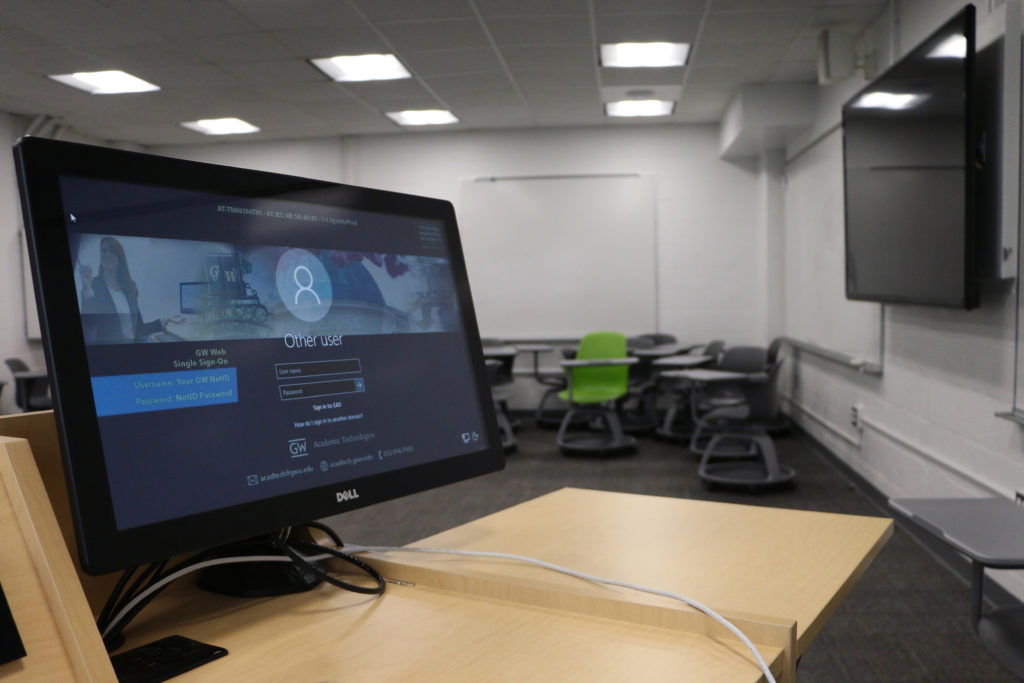Online classes may seem daunting, but that doesn’t mean there is no way to be a star student.
Take some time to connect with professors, practice a self-care routine and stay in touch with classmates to alleviate some worries heading into an uncertain semester. Here are some ways you can breeze through your one and – hopefully – only online semester.
Getting work done at home
When you’re not meeting with professors and classmates twice a week, it’s easy to forget about assignments.
To help you stay on track, purchase a paper planner, write lists on your phone or use an app like MyStudyLife to keep track of assignments and due dates. You could also use your phone calendar to remind yourself when it’s homework time and when it’s not.
Pulling out your phone and browsing social media during class is now easier than ever before. And while this may seem tempting during a lecture, it’s not going to help you learn the material. Instead, put your phone on silent mode and take notes in a paper notebook to reduce distractions. Use a method like time-management guru Francesco Cirillo’s Pomodoro Technique – work for 25 minutes, then take a five-minute break – to stay focused.
Even if you’re working in the most distracting place possible, behave like you’re in a classroom. Wear clothes that aren’t your pajamas and don’t attend class in bed – those who get dressed for the day and find a dedicated place to complete tasks tend to be more focused and productive.
Connecting with your professors, adviser
Staying in touch with your professors can help you stay plugged into class and feel motivated to get assignments done on time. Plus, if the professor knows you, they are more likely to help you out with assignments and write letters of recommendation.
One good way to stay on your professor’s radar is by participating in class. Turn on your camera, and stay engaged with the material. If your class has an opportunity for discussion, try to share something at least once in each class. It sounds intuitive, but you’d be surprised by how many blank monitors you see during lectures.
Attending your professor’s online office hours will also help them to remember you. Use the opportunity to ask questions about anything from class that you didn’t understand or want to know more about. Office hours are also a great time to run ideas for an upcoming paper, exam or project by your professor before your work is finalized and graded.
Your school’s academic adviser can also help you navigate your degree requirements and career options. If your program doesn’t already require you to set up a one-on-one meeting with them, you might want to do so in case any academic issues arise during the semester.
Socializing from home
The line between school and home has never been more blurred. Your social, school and home life are wrapped up in one space, so make sure you step back from the day-to-day responsibilities to take care of yourself.
Unfortunately, there won’t be casual conversations before class, and you won’t pass people in the hall or run into a friend on your way back to your room. Make sure to schedule time for yourself to chat with friends over FaceTime or Zoom, where you can host both game nights or digital ragers. Some streaming services, like Netflix Party, also allow you and your friends to watch your favorite shows and movies together by synchronizing video playback.
Depending on your location, you might also find that there are other students living around you. Organize a socially-distanced hike or walk so you can meet your peers in person – you’re guaranteed a familiar face once you can walk around campus.
Keeping yourself healthy
It’s also important to make healthy choices when learning at home. When going to class simply means opening up a computer rather than walking across campus, and you can’t access the Lerner Health and Wellness Center, there is much less opportunity to move your body during a school day.
Exercise helps your brain in both the short and long term – it raises your heart rate, increases blood flow to the brain and ultimately has been linked to a decrease in cognitive decline as we age.
Go for a walk or run outdoors, or pull up a yoga video on YouTube or Instagram Livestream. You should also always keep some snacks, like apples or granola bars, stocked up in your kitchen or room in case you need a pick-me-up between studying.
Don’t overwhelm yourself
Overcommitting yourself to extracurriculars couldn’t be more appealing but difficult at once. You might feel like fulling investing in an organization while you have more time on your hands, but make sure you only take on the activities you know you can handle.
Sleep and relaxation are important, so don’t sacrifice them for another responsibility. Consider planning an online meditation session into your schedule a few times a week, or download an app like Mindfulness Daily, which pushes you to include a few short intervals of mindfulness throughout your day. You could also start your day with a morning journal prompt to keep yourself on track throughout the day.







